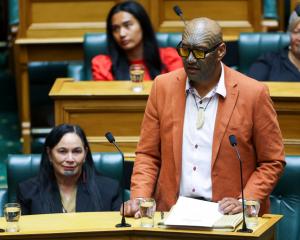Immigration visa delays could be costing this country hundreds of millions of dollars. At the same time, the delays are contributing to stress and labour shortages for employers, disruption for potential immigrants and heartache for families.
In all of this, New Zealand appears like a third-world country as its immigration service fails to do its job. Apart from the particulars of thousands of individual cases, this country's reputation suffers.
The issues have been mounting over the past year, and Immigration New Zealand (INZ) and the Government have come up with explanations. But, whatever the causes, a timely, efficient and effective immigration system is essential for all concerned.
Little, isolated New Zealand cannot afford such headwinds to its economic performance. Governmental functions, including those for local authorities, must work well if this country is to earn its way in the world and prosper.
Partner visa delays are one problem. INZ has almost 8500 partnership temporary visa applications in its system. Nearly 3000 of these are from Indian nationals.
One of those taking part in a protest in Auckland late last week, for example, Harjeet Singh Brar, is a New Zealand resident who returned to India for his wedding. He later applied for a temporary partnership visa for his wife, and said he was told it would take two months to receive the outcome. He was then told three months, and now after six months he still does not have an answer.
INZ will be moving all new partnership visas from the Indian sub-continent to a hub in Hamilton next month. Given the backlog, it is hard to see that making much difference for quite some time.
INZ says visa applicant numbers from India have been increasing, and many more applications require checking and verification, especially in the wake of widespread fraud. That is little comfort to separated couples.
The delays are also disrupting international student enrolments. It is here the direct economic costs have quickly soared.
Delays rose sharply from later last year as INZ closed 10 branches and shifted all non-Chinese, off-shore student visa applications to Mumbai. Visa processing was centralised in Mumbai, Beijing and remaining Pacific and New Zealand offices.
Simultaneously, INZ began giving more scrutiny to applications, citing threats to the integrity of the immigration system, the likes of human trafficking, non-compliance with visa conditions and fraud.
INZ could well have been far too lax or trusting in the past, especially from places where corruption is rife. Indeed, the scams and rorts must be curbed, and there have been far too many.
But that is not a sufficient excuse for inordinate delays. INZ, for whatever reasons, has not been equipped to do its job.
Centralisation, too, has brought predictable drawbacks. Education New Zealand has reported that recognised agents in the Americas and Asia have said the loss of local country and cultural knowledge is causing unreasonable requests for extra information. Everything, then, slowdowns, backlogs, increase and frustration from prospective students swells.
Heads of polytechnics, including the chief executives of Otago Polytechnic and the Southland Institute of Technology, have reported losing international students because of visa delays. This can amount to millions of dollars in lost income each. Add that up around the country, and from private education providers, and the totals mount quickly.
Meanwhile, Otago Southland Employers Association chief executive Virginia Nicholls has received a lot of feedback about delays in processing migrant visa application causing very good job candidates to be lost.
INZ says it is working to improve processing times, while Mrs Nicholls points to a cumbersome and unnecessary step in the operation. Bureaucracy requires a balance between safeguards - and they are vital in immigration - and efficiency and flexibility.












